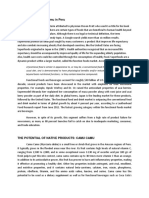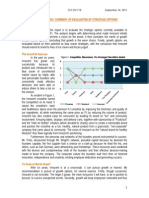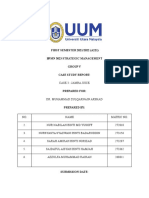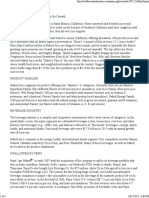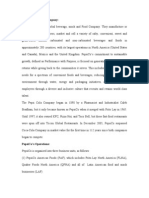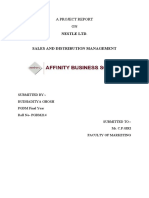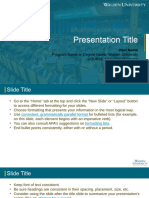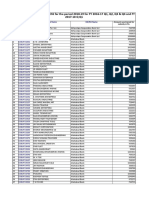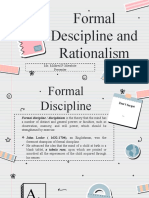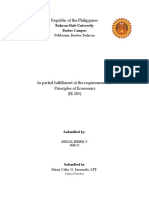0% found this document useful (0 votes)
58 views7 pagesIntroduction
POM Wonderful is a company that produces pomegranate juice and other products. It has faced legal issues over its health claims about reducing disease risk. The Federal Trade Commission determined that POM Wonderful made unsubstantiated health claims in advertisements. While an appeals court agreed with many of the FTC's findings, it did partially side with POM Wonderful in stating that one clinical trial, rather than two, could substantiate health claims. This legal case established guidelines around what evidence is required for food and supplement companies to make disease prevention claims in advertising.
Uploaded by
KENNEDYCopyright
© © All Rights Reserved
We take content rights seriously. If you suspect this is your content, claim it here.
Available Formats
Download as DOCX, PDF, TXT or read online on Scribd
0% found this document useful (0 votes)
58 views7 pagesIntroduction
POM Wonderful is a company that produces pomegranate juice and other products. It has faced legal issues over its health claims about reducing disease risk. The Federal Trade Commission determined that POM Wonderful made unsubstantiated health claims in advertisements. While an appeals court agreed with many of the FTC's findings, it did partially side with POM Wonderful in stating that one clinical trial, rather than two, could substantiate health claims. This legal case established guidelines around what evidence is required for food and supplement companies to make disease prevention claims in advertising.
Uploaded by
KENNEDYCopyright
© © All Rights Reserved
We take content rights seriously. If you suspect this is your content, claim it here.
Available Formats
Download as DOCX, PDF, TXT or read online on Scribd
/ 7




